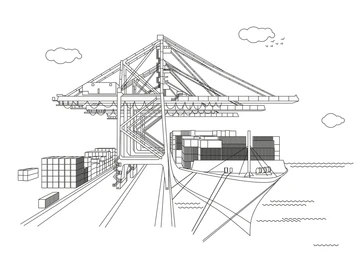Introduction
The real estate industry, long known for its traditional processes and slow adoption of technology, is undergoing a massive transformation in 2025. Fueled by innovation, changing consumer behavior, and increasing demand for transparency, real estate startups are redefining the way properties are bought, sold, rented, and even managed. This shift is not just about technology but about a complete overhaul of the traditional real estate ecosystem. In this blog, we explore how startups are disrupting the property market, the technologies they’re using, their business models, and what it means for buyers, sellers, and investors.
1. The Rise of Real Estate Startups
1.1 The Need for Disruption
For decades, the property market has been dominated by intermediaries and outdated systems. Long transaction times, lack of data transparency, and high commissions left room for improvement. Startups saw this as an opportunity to solve pain points through automation, data analytics, and digital platforms.
1.2 The New Age Entrepreneurs
Millennial and Gen Z entrepreneurs, with a background in tech and finance, have entered the market with fresh perspectives. Backed by venture capital, they are building lean, scalable, and tech-first solutions that address specific inefficiencies in the real estate ecosystem.
2. Technology as the Core of Disruption
2.1 Artificial Intelligence and Big Data
AI-driven platforms are now predicting property trends, evaluating pricing with precision, and matching buyers with properties based on deep learning algorithms. Big data is helping startups analyze millions of data points to improve decision-making for clients.
2.2 Blockchain and Smart Contracts
Property title verification, transaction logging, and even rental agreements are being moved to blockchain platforms. Smart contracts eliminate the need for middlemen and ensure secure, real-time settlements.
2.3 Virtual and Augmented Reality
Startups are using VR/AR to offer virtual tours, helping buyers explore properties remotely. This has revolutionized cross-city and international property deals, especially in the post-COVID digital era.
2.4 Internet of Things (IoT)
In smart homes, IoT devices monitor everything from temperature to security. Real estate startups integrate IoT features in their listings to appeal to tech-savvy buyers.
3. Key Startup Business Models
3.1 Online Marketplaces
Platforms like NoBroker, Houzeo, and NestAway allow buyers and sellers to connect directly, bypassing agents and saving on commissions.
3.2 Fractional Ownership Platforms
Startups like Strata and Myre Capital enable users to co-own high-value commercial properties with others and earn rental income, making real estate investment more accessible.
3.3 Property Management SaaS
For landlords and builders, SaaS platforms provide tools to manage rent, maintenance, and tenant communication, improving efficiency and tenant satisfaction.
3.4 End-to-End Real Estate Services
Startups like Square Yards and PropTiger provide everything from legal consultation to home loans under one digital roof, offering a seamless customer experience.
4. Impact on Traditional Real Estate Players
4.1 Shift in Buyer Expectations
Today’s buyers demand convenience, speed, and transparency. Traditional agents who fail to adapt are losing market share to tech-savvy competitors.
4.2 Pressure to Digitize
Established firms are being forced to invest in technology, hire digital consultants, and revamp their processes to stay relevant.
4.3 Collaborations and Acquisitions
Rather than compete, some traditional firms are partnering with startups or acquiring them to access technology and innovation.
5. Challenges Faced by Startups
5.1 Regulatory Compliance
Real estate is heavily regulated, and startups often struggle to navigate varying laws across states and countries.
5.2 Customer Trust and Awareness
Despite offering better solutions, gaining consumer trust remains a hurdle for newer brands. Education and branding are crucial.
5.3 Funding and Scalability
While some startups have secured funding, many struggle to scale due to high operational costs and competition.
6. Investment and Growth Potential
6.1 Venture Capital Interest
In 2025, investors see real estate tech (PropTech) as a high-growth sector. Billions are being poured into platforms that show promise in scalability and profitability.
6.2 Global Expansion
Successful Indian startups are now going global, offering services in the UAE, Singapore, and Australia, indicating the scalability of digital-first real estate businesses.
6.3 IPOs and Acquisitions
As the sector matures, many startups are preparing for IPOs or acquisition by larger players, signaling consolidation in the market.
7. What This Means for Buyers, Sellers, and Investors
7.1 For Buyers
They now have more information, better pricing tools, and greater convenience when searching for properties.
7.2 For Sellers
They can list properties without agents, access analytics, and close deals faster.
7.3 For Investors
New investment opportunities like fractional ownership, REITs, and data-driven analytics make real estate more attractive than ever.
8. Future Trends and Predictions (2025–2030)
- AI will replace most manual processes in property valuation.
- Metaverse-based property showrooms will become mainstream.
- More real estate platforms will adopt crypto payment options.
- Green and sustainable property startups will emerge as a dominant category.
Conclusion
The real estate landscape in 2025 is nothing like it was a decade ago. Disruption is not a threat—it’s an opportunity. Real estate startups are empowering users with data, speed, and control. For traditional firms, it’s a wake-up call. For buyers and investors, it’s a golden era. The next wave of billion-dollar companies will likely emerge from PropTech, and those who understand this shift today will lead tomorrow’s real estate revolution.
























Join The Discussion